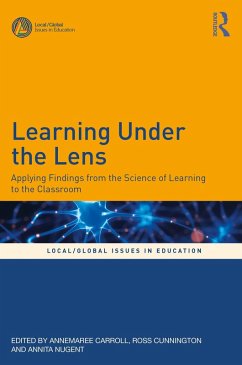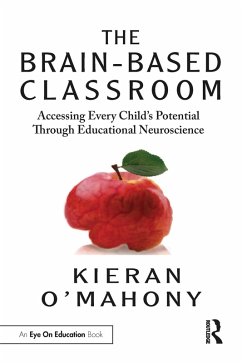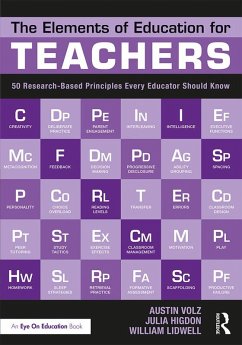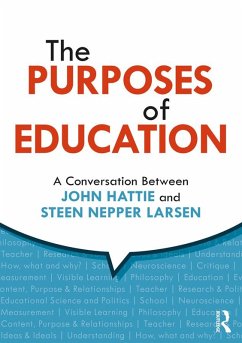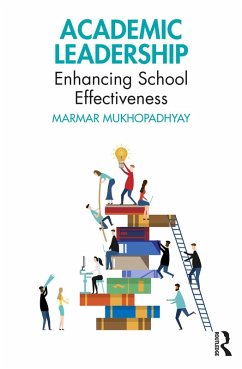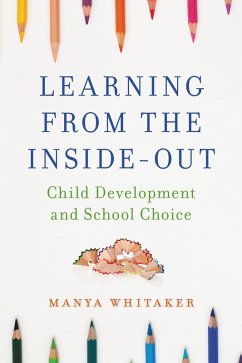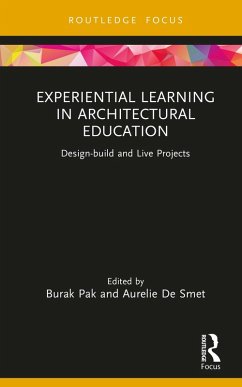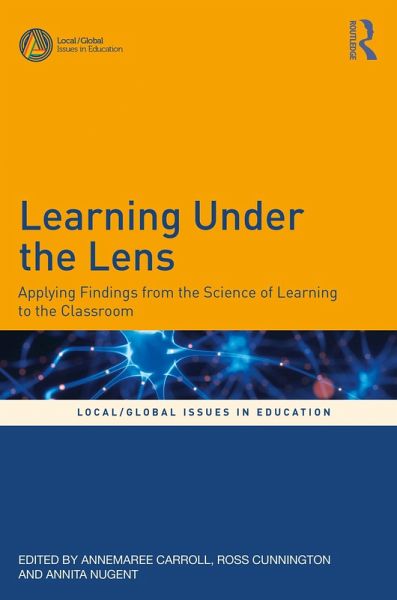
Learning Under the Lens (eBook, ePUB)
Applying Findings from the Science of Learning to the Classroom
Redaktion: Carroll, Annemaree; Nugent, Annita; Cunnington, Ross
Versandkostenfrei!
Sofort per Download lieferbar
37,95 €
inkl. MwSt.
Weitere Ausgaben:

PAYBACK Punkte
19 °P sammeln!
Learning Under the Lens: Applying Findings from the Science of Learning to the Classroom highlights the innovative approach being undertaken by researchers from the disparate fields of neuroscience, education and psychology working together to gain a better understanding of how we learn, and its potential to impact student learning outcomes.The book is structured in four parts: 'Science of learning: a policy perspective' sets the scene for this emerging field of research; 'Self regulation of learning' and 'Technology and learning' feature findings by eminent international and national research...
Learning Under the Lens: Applying Findings from the Science of Learning to the Classroom highlights the innovative approach being undertaken by researchers from the disparate fields of neuroscience, education and psychology working together to gain a better understanding of how we learn, and its potential to impact student learning outcomes.
The book is structured in four parts: 'Science of learning: a policy perspective' sets the scene for this emerging field of research; 'Self regulation of learning' and 'Technology and learning' feature findings by eminent international and national researchers in the field and provides an insight into some of the innovative research illustrating the depth, breadth and multi-disciplinarity of the research; and 'Research translation' focuses on the scaled-up implementation of research findings in authentic learning settings, and showcases research findings which are having impact in learning environments.
This fascinating book is intended as a reference tool to create awareness among researchers, policy makers, and education practitioners of the research being undertaken in the science of learning field and its potential to impact student learning outcomes.
The book is structured in four parts: 'Science of learning: a policy perspective' sets the scene for this emerging field of research; 'Self regulation of learning' and 'Technology and learning' feature findings by eminent international and national researchers in the field and provides an insight into some of the innovative research illustrating the depth, breadth and multi-disciplinarity of the research; and 'Research translation' focuses on the scaled-up implementation of research findings in authentic learning settings, and showcases research findings which are having impact in learning environments.
This fascinating book is intended as a reference tool to create awareness among researchers, policy makers, and education practitioners of the research being undertaken in the science of learning field and its potential to impact student learning outcomes.
Dieser Download kann aus rechtlichen Gründen nur mit Rechnungsadresse in A, B, BG, CY, CZ, D, DK, EW, E, FIN, F, GR, HR, H, IRL, I, LT, L, LR, M, NL, PL, P, R, S, SLO, SK ausgeliefert werden.




